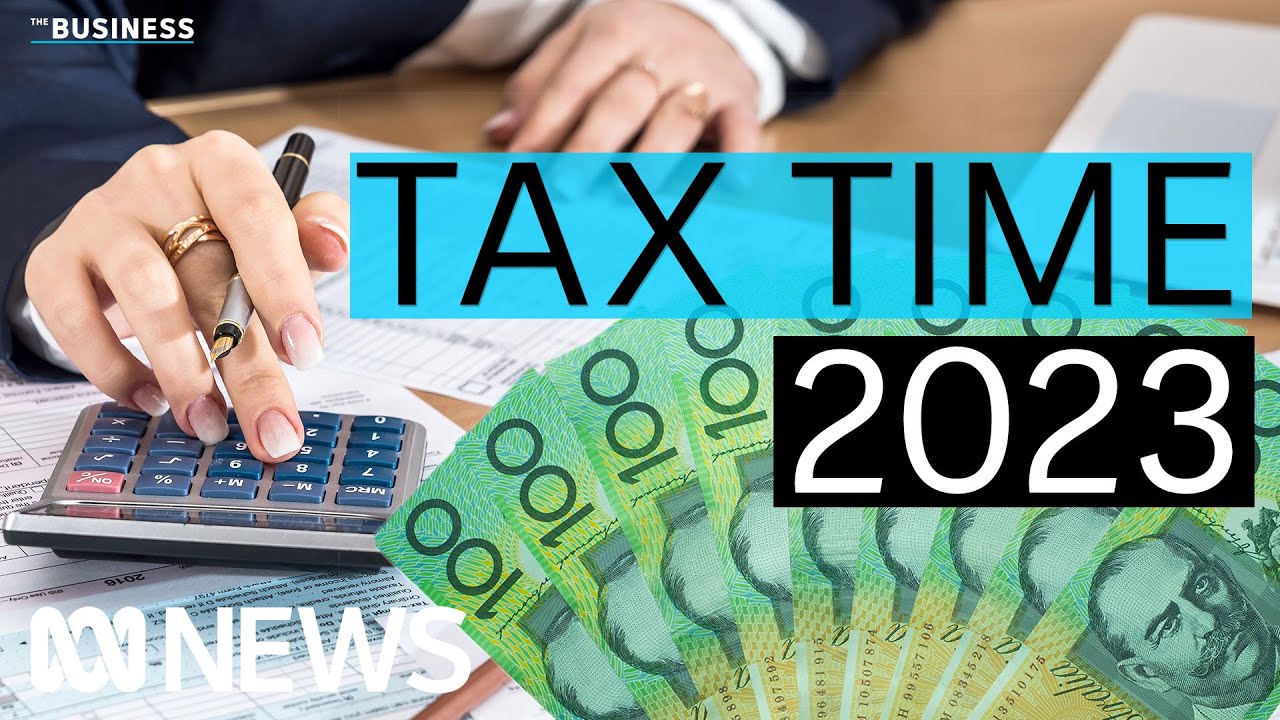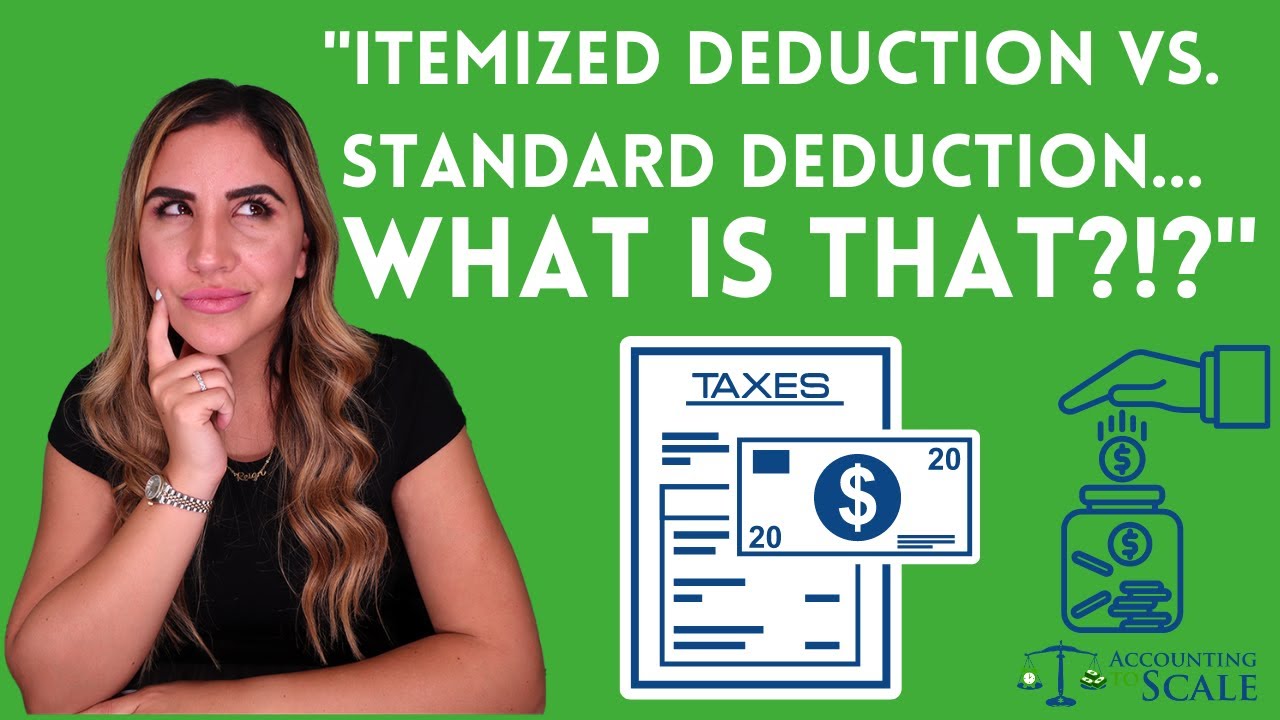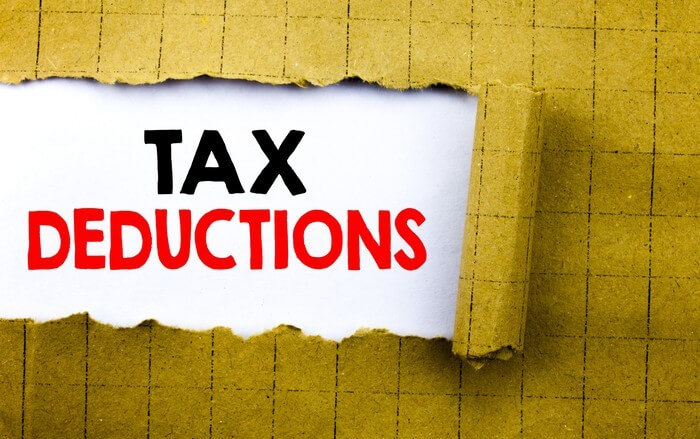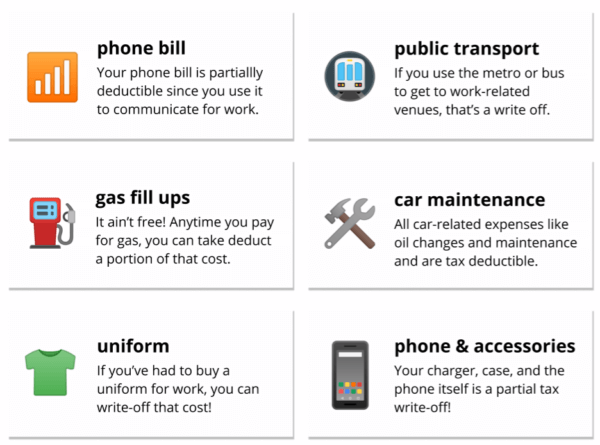What are tax deductions? Tax deductions play a vital role in reducing taxable income and minimizing the amount of tax owed. They offer individuals and businesses an opportunity to legally lower their tax liability by deducting eligible expenses.
Let's explore the ins and outs of tax deductions, from understanding their definition and purpose to uncovering strategies for maximizing their benefits. Discover how tax deductions can help you save moneyand optimize your tax situation.
What Is A Tax Deduction?
Tax season can be a daunting time, but understanding tax deductions can help ease the burden. A tax deduction is a valuable tool that allows individuals and businesses to lower their taxable income and potentially reduce the amount of tax they owe. In this article, we'll delve into the concept of tax deductions, explore how toclaim them in the United States, Canada, Australia, and the United Kingdom, and provide insights on maximizing your deductions.
Understanding Tax Deductions
A tax deduction is a financial benefit that allows individuals and businesses to reduce their taxable income, consequently lowering the amount of tax they owe. By leveraging various deductions available in the tax code, taxpayers can potentially save a significant amount of money.
Tax deductions operate on the principle that individuals and businesses should only be taxed on their net income, i.e., the income remaining after accounting for certain eligible expenses. These expenses may include items such as mortgage interest, medical expenses, charitable contributions, and business-related costs.
It's important to note that tax deductions are not a dollar-for-dollar reduction in taxes owed. Instead, they reduce the taxpayer's taxable income, which ultimately affects the amount of tax they owe. The actual tax savings resulting from a deduction depend on the taxpayer's marginal tax rate—the rate applied to the last dollar of taxable income.
Now that we have a basic understanding of tax deductions, let's explore how to claim them in different countries.
How To Claim A Tax Deduction In The US, Canada, Australia And UK
The process of claiming tax deductions varies across countries. Here's a breakdown of how deductions work in the United States, Canada, Australia, and the United Kingdom.
United States

What are Tax Write-Offs? Tax Deductions Explained by a CPA!
In the United States, taxpayers have the option to either itemize deductions or take the standard deduction. Investopedia explains that itemized deductions involve listing eligible expenses individually, such as mortgage interest, state and local taxes, medical expenses, and charitable contributions. On the other hand, the standard deduction is a predetermined amount that taxpayers can claim without itemizing their expenses. The choice between itemizing or taking the standard deduction depends on which option provides the greatest tax benefit.
Canada

How to Pay Less Taxes in Canada | 15 Secrets The Taxman Doesn't Want You To Know
In Canada, individuals can claim various deductions on their personal tax returns. The Canadian government allows deductions for employment expenses, home office expenses, child-care expenses, contributions to registered retirement savings plans (RRSPs), and more. It's important to review the Canadian tax code and consult with a tax professional to determine which deductions are applicable to your situation.
Australia

The ATO has changed how you can claim tax deductions | The Business | ABC News
In Australia, taxpayers can claim deductions for work-related expenses incurred while performing their job duties. Universal Taxation, an Australian accounting firm, suggests that these expenses may include uniforms, home office expenses, professional memberships, and self-education costs. To maximize tax benefits, familiarize yourself with the specific deduction rules in Australia.
United Kingdom

Top 5 tax deductions for the self-employed [2022 UK Tax Return]
In the United Kingdom, individuals can claim deductions through various means. Gov.uk, the official UK government website, states that deductions can be made for contributions to pension schemes, expenses related to employment, and charitable donations. The UK tax system also offers a personal allowance—an amount that individuals can earn tax-free. Any income above this allowance becomes subject to tax.
It's crucial to stay updated with tax laws and regulations, as they are subject to change. Consulting with a tax professional or referring to the official tax authority in your respective country can ensure compliance with the latest guidelines.
Tax Deductions For The Self-Employed In The US, Canada, Australia And UK
Self-employed individuals face unique circumstances when it comes to tax deductions. As they are responsible for both employer and employee tax obligations, understanding the deductions available to them is vital. Let's explore tax deductions for the self-employed in the United States, Canada, Australia, and the United Kingdom.
United States
In the United States, self-employed individuals can claim various deductions to offset their businessexpenses. These deductions include home office expenses, vehicle expenses, health insurance premiums, professional services fees, and contributions to retirement plans. To ensure you take advantage of all eligible deductions, it's crucial to maintain detailed records and consult with a tax professional.
Canada
Self-employed individuals in Canada can claim a range of deductions related to their business activities. The Canadian government allows deductions for business use of home expenses, business-related vehicle expenses, professional fees, advertising costs, and office supplies. Additionally, self-employed individuals can contribute to the Canada Pension Plan (CPP) or the Quebec Pension Plan (QPP) and deduct those contributions from their taxable income.
What Are Common Tax Deductions?
Tax deductions can vary widely depending on the country and the taxpayer's circumstances. However, certain deductions tend to be common across many tax systems. Let's explore some of the most common tax deductions available to individuals and businesses.
Mortgage Interest
One of the most significant deductions for many individuals is the mortgage interest deduction. This deduction allows taxpayers to deduct the interest paid on their mortgage loans. In some cases, mortgage points, which are upfront fees paid to reduce the interest rate on the loan, may also be deductible.
Medical Expenses
Taxpayers in many countries can deduct qualified medical expenses, including doctor visits, prescription medications, medical treatments, and health insurance premiums. However, it's important to note that medical expense deductions are subject to specific limitations and thresholds in each country.
Charitable Contributions
Contributions made to eligible charitable organizations often qualify for tax deductions. Taxpayers can deduct cash donations, as well as non-cash donations such as clothing, furniture, and vehicles, as long as they meet specific criteria set by the tax authorities.
Business Expenses
Business owners can typically deduct various expenses necessary for conducting business operations. These expenses may include office rent, utilities, equipment purchases, business-related travel, professional fees, and marketing costs. Proper documentation and record-keeping are essential to support these deductions.
Education Expenses
Taxpayers in many countries can claim deductions or credits for certain education-related expenses. These may include tuition fees, textbooks, and other education-related supplies. Additionally, some countries offer tax benefits for contributions made to education savings plans.
For Small Business Tax Deductions
Small businesses play a crucial role in the economy, and governments often provide additional tax deductions to support their growth and encourage entrepreneurship. Here are some common tax deductions available to small businesses:
Home Office Expenses
Small business owners who operate their businesses from their homes may be eligible to claim deductions for home office expenses. These deductions can include a portion of rent or mortgage interest, utilities, insurance, and other related costs. The home office must meet specific criteria to qualify for this deduction.
Vehicle Expenses
Small business owners who use vehicles for business purposes can typically deduct the associated expenses. This may include fuel costs, maintenance and repairs, insurance premiums, and depreciation. Proper documentation and record-keeping are vital to support these deductions.
Employee Wages And Benefits
Small businesses can deduct wages, salaries, and other forms of compensation paid to employees. Additionally, contributions made to employee benefit plans, such as health insurance and retirement plans, may also be deductible.
Startup Expenses
Many countries offer tax deductions or allowances for startup expenses incurred by new businesses. These deductions can include costs related to market research, legal and accounting services, advertising and marketing, and equipment purchases. Startup deductions provide valuable support to new businesses in their initial stages.
Tax Deductions Vs. Tax Credits
It's important to differentiate between tax deductions and tax credits. While both can reduce your tax liability, they work differently.
Tax Deductions
Tax deductions, as we've discussed, reduce your taxable income. By deducting eligible expenses from your income, you lower the amount of income subject to tax. The actual tax savings depend on your marginal tax rate.
Tax Credits
On the other hand, tax credits directly reduce your tax liability. They are applied as a dollar-for-dollar reduction in the amount of tax you owe. For example, if you have a $500 tax credit, your tax liability decreases by $500.
What Is The Example Of A Tax Deduction?
To understand tax deductions better, let's consider an example. Suppose you're a self-employed graphic designer in the United States. Throughout the year, you've incurred various business expenses, such as software subscriptions, office supplies, and advertising costs. These expenses are essential for running your business and generating income.
By deducting these business expenses from your taxable income, you can potentially lower your tax liability. Let's say your total business expenses amount to $10,000. If your marginal tax rate is 25%, deducting the expenses would reduce your taxable income by $10,000 and save you $2,500 in taxes.
It's important to keep detailed records of your business expenses and consult with a tax professional to ensure you're claiming all eligible deductions accurately.
Standard Deductions Vs. Itemized Deductions

Itemized Deduction vs. Standard Deduction, Explained.
When filing your tax return, you have the option to take the standard deduction or itemize your deductions. Let's understand the difference between these two approaches.
Standard Deduction
The standard deduction is a predetermined amount that taxpayers can claim without itemizing their expenses. It simplifies the tax-filing process and ensures that all taxpayers receive a minimum deduction. The standard deduction varies depending on factors such as filing status, age, and whether the taxpayer can be claimed as a dependent.
Itemized Deductions
On the other hand, itemized deductions involve listing eligible expenses individually, such as mortgage interest, state and local taxes, medical expenses, and charitable contributions. Itemizing deductions requires more effort and record-keeping but can potentially result in greater tax savings if the total itemized deductions exceed the standard deduction.
To decide whether to take the standard deduction or itemize, it's important to compare both options and choose the one that provides the greatest tax benefit.
What Are Limits On Tax Deductions
While tax deductions can significantly reduce your tax liability, it's important to be aware of certain limitations and thresholds imposed by tax authorities. These limits can affect the amount of deductions you can claim. Here are some common limitations to consider:
Income-based Limits
In some cases, tax deductions may be subject to income-based phaseouts or limitations. These limitations may reduce or eliminate the deduction as your income exceeds a certain threshold.
Thresholds For Medical Expenses
Medical expense deductions often have a threshold, meaning you can only deduct expenses that exceed a certain percentage of your adjusted gross income (AGI). For example, in the United States, you can deduct medical expenses that exceed 7.5% of your AGI for tax year 2021.
Charitable Contribution Limits
Taxpayers can typically deduct charitable contributions up to a certain percentage of their AGI. However, the exact limit may vary depending on the country and the type of charitable organization.
It's crucial to stay informed about these limitations and consult with a tax professional to understand how they may impact your deductions.
What Can I Write Off On My Taxes?
When it comes to tax deductions, individuals and businesses often wonder what expenses they can write off on their taxes. While the specific deductibility of expenses may vary depending on your country's tax code, let's explore some common categories of deductions.
Business Expenses
If you're a business owner or self-employed, you can typically deduct various expenses related to your business operations. This includes office rent, utilities, equipment purchases, business-related travel, professional fees, and marketing costs. It's important to keep detailed records and separate personal and business expenses.
Home Office Expenses
If you have a dedicated space in your home that you use exclusively for business purposes, you may be eligible to deduct home office expenses. This includes a portion of rent or mortgage interest, utilities, insurance, and other related costs. However, certain criteria must be met to qualify for this deduction.
Vehicle Expenses
If you use a vehicle for business purposes, you can typically deduct the associated expenses. This includes fuel costs, maintenance and repairs, insurance premiums, and depreciation. It's essential to keep a mileage log and accurately track your business-related vehicle expenses.
Education Expenses
Certain education-related expenses may be deductible, depending on your country's tax laws. This includes tuition fees, textbooks, and supplies related to your education. Additionally, some countries offer tax benefits for contributions made to education savings plans.
Medical Expenses
Eligible medical expenses are often deductible, subject to specific limitations. These may include doctor visits, prescription medications, medical treatments, and health insurance premiums. It's important to check your country's tax code for the threshold and requirements related to medical expense deductions.
Charitable Contributions
Contributions made to eligible charitable organizations may qualify for tax deductions. Cash donations and non-cash donations, such as clothing, furniture, and vehicles, can be deductible if they meet certain criteria set by the tax authorities.
These are just a few examples of the expenses that may be deductible on your taxes. It's crucial to consult with a tax professional or refer to your country's tax authority to understand the specific deductibility rules and requirements.
How Can I Maximize My Tax Deductions?
Maximizing your tax deductions can help lower your tax liability and potentially increase your tax refund. Here are some strategies to consider:
Keep Detailed Records
Maintain meticulous records of your expenses throughout the year. This includes receipts, invoices, bank statements, and any other supporting documentation. Accurate records will help you identify eligible deductions and ensure you have the necessary evidence in case of an audit.
Stay Informed About Changes In Tax Laws
Tax laws and regulations can change from year to year. Stay updated on any new legislation or revisions that may impact your deductions. Consulting with a tax professional can provide valuable insights and ensure you're taking advantage of all available deductions.
Consider Timing Of Expenses
Depending on your country's tax laws, the timing of certain expenses can affect your deductions. For example, prepaying certain expenses before the end of the tax year may allow you to claim the deduction in the current year. Be mindful of any specific deadlines or requirements related to timing.
Explore Tax Planning Strategies
Tax planning involves proactively organizing your finances to optimize your tax situation. By engaging in strategic financial decisions, such as contributing to retirement accounts or making charitable donations, you can potentially increase your tax deductions. Consider working with a tax professional or financial advisor to develop a comprehensive tax planning strategy.

Ways to Boost Your Tax Refund | Maximize Your Tax Refund
What Is The Maximum Tax Refund You Can Get? FAQ
The maximum tax refund you can receive depends on various factors, including your income, eligible deductions, credits, and the tax rates in your country. It's important to note that tax refunds are not guaranteed, as they depend on your overall tax liability and the accuracy of your tax return.
To maximize your tax refund, ensure you take advantage of all eligible deductions and credits, and accurately report your income and expenses. Deductions such as mortgage interest, medical expenses, and charitable contributions can significantly impact your refund.
Additionally, consider consulting with a tax professional or using tax software to help identify all applicable deductions and credits. These tools can help optimize your tax return and potentially increase your refund.
People Also Ask
Which Expenses Are Allowed As Deductions?
Common expenses allowed as deductions include:
- Insurance premium payments
- Employee bonuses or commissions
- Interest on borrowed capital
- Discount on Zero Coupon Bonds (ZCB)
- Contributions to recognized provident funds, National Pension Fund (NPS), and approved gratuity funds
Consult with a tax professional or refer to the official tax authority in your country for specific eligible deductions.
Which Expenditure Is Not Deductible?
Non-deductible business expenses are costs that cannot be written off on your taxes. Examples include meals and entertainment expenses, personal car payments, and home office deductions for personal use spaces. Deductibility depends on tax laws and regulations. Seek guidance from a tax professional for clarity.
What Is The Difference Between Expenses And Deductions?
Expenses are costs incurred by individuals or businesses, while deductions are eligible expenses subtracted from taxable income to reduce tax liability. Deductions lower the amount of taxes owed by reducing taxable income. Accurate tracking and documentation of expenses are essential for proper deductions on your tax return.
Conclusion
So, what are tax deductions? Understanding tax deductions is crucial for optimizing your tax strategy and minimizing your tax liability. By familiarizing yourself with the specific deductions available in your country, maintaining meticulous records, and consulting with a tax professional, you can make the most of your eligible deductions. Remember, tax laws are complex and subject to change, so it's essential to stay informed and seek professional guidance to navigate the ever-evolving landscape of tax deductions.



